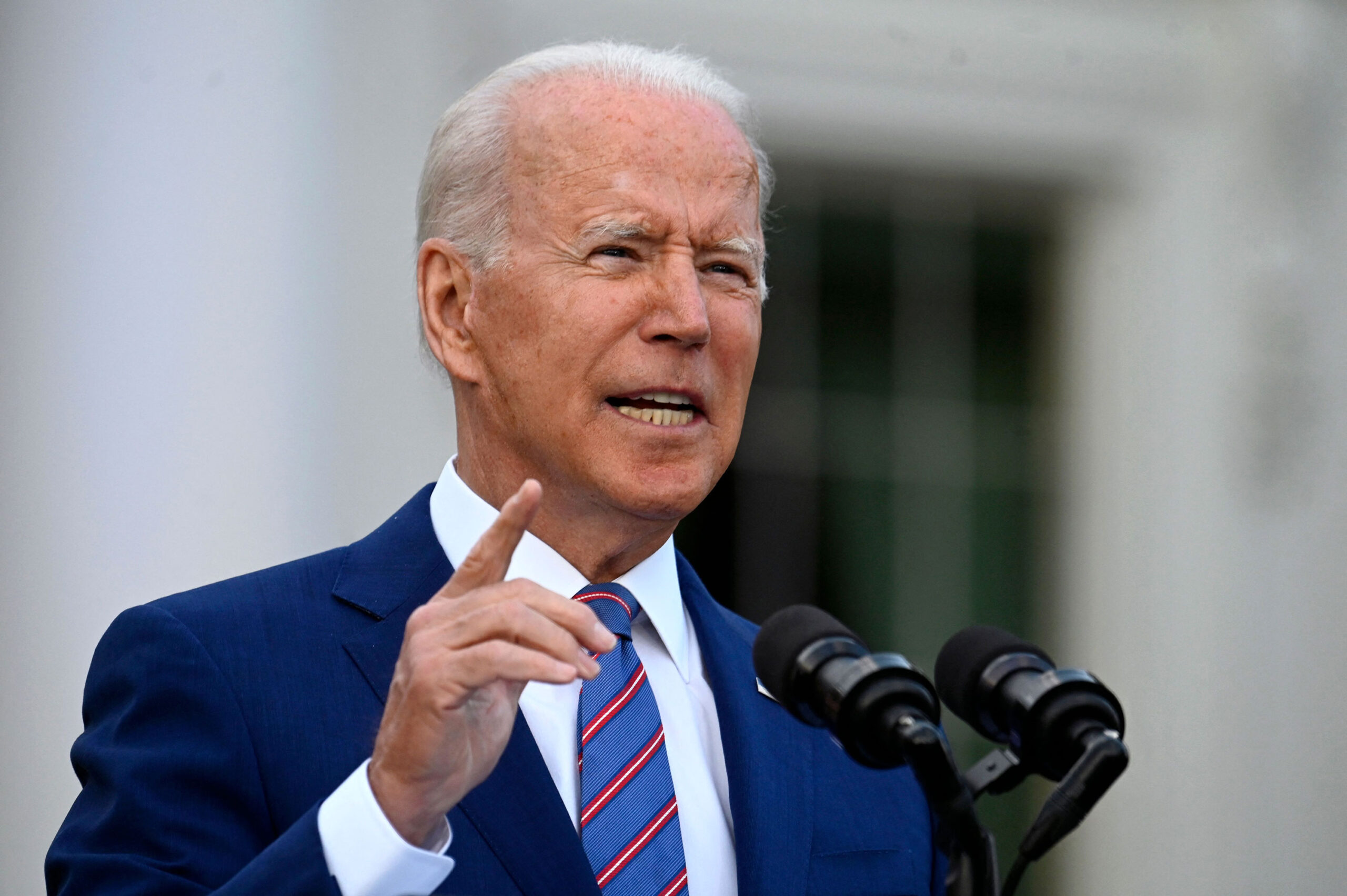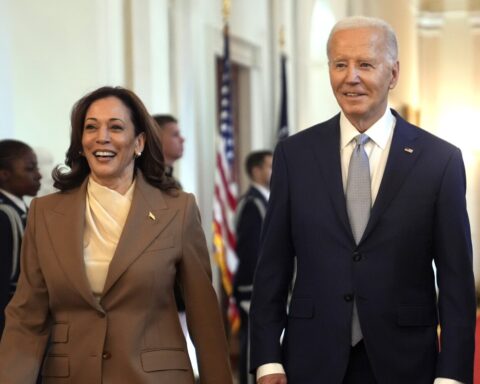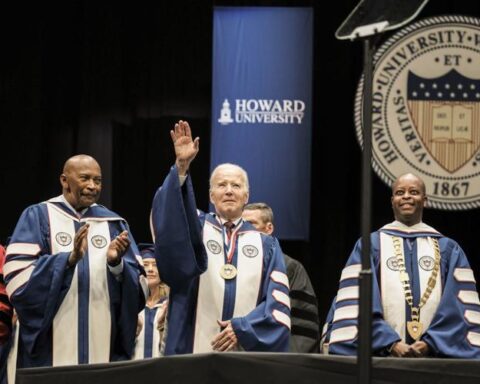President Joe Biden issued a dire and angry warning Tuesday that the very underpinnings of American democracy were under threat, calling an ongoing assault on voting rights the gravest challenge to American democracy since the Civil War.
But he stopped short of embracing changes to Senate procedure that might open the door to new laws protecting those rights, a step activists have said is essential as they urge the President to say and do more on an issue he’s said is the most important of his presidency.
The President’s speech in Philadelphia, the birthplace of American democracy, was meant as an opening salvo in what officials say will be an ongoing push against restrictive voting laws being passed around the nation.
In it, Biden took particular aim at his predecessor Donald Trump and other Republicans who have refused to accept the results of the 2020 presidential election, accusing them of fomenting a pattern of denial that is fracturing the country’s foundations.
“In America, if you lose, you accept the results,” Biden said inside the soaring atrium of the National Constitution Center. “You follow the Constitution, you try again. You don’t call facts ‘fake’ and then try to bring down the American experiment just because you’re unhappy. That’s not statesmanship. That’s selfishness.”
It was the most forcefully Biden has inveighed against Trump since taking office. At one point, accusing Republicans of shirking truth and responsibility for upholding the Constitution, he bellowed: “Have you no shame?”
One of the fieriest speeches of Biden’s presidency to date, Biden’s remarks reflected the fury he and fellow Democrats have cultivated as Republicans follow Trump’s lead in denying the election results. He predicted it is likely Republicans will use a similar strategy in the 2022 midterms, saying “we have to prepare now.”
He called efforts to call the election in question “dark” and “sinister” on Tuesday, saying they reflected “human nature at its worst.”
“Bullies and merchants of fear, peddlers of lies, are threatening the very foundation of our country,” Biden said.
Still, his avoidance of the filibuster issue proved disappointing to some of the activists who want Biden to embrace changes that would allow new legislation in Congress.
“Supporters of democracy will continue to organize and advocate, but we cannot organize our way out of this threat. It is up to our elected officials to hear supporters and act to protect our democracy,” said Wade Henderson, president of the Leadership Conference on Civil and Human Rights, after Biden’s speech.
Asked on his way out of the venue why he did not raise the filibuster, Biden told reporters only: “I’m not filibustering now.”
He began his speech by recounting the stories of Americans who voted in the last election, lauding them for their efforts to cast their ballots amid the Covid-19 pandemic. He noted the 2020 contest had the most votes cast in any election in American history.
But he quickly turned his focus to the attacks on the 2020 election process, calling it the most scrutinized in American history. He alluded to Trump’s complaints about the election results, saying those who would deny the election result are simply denying facts.
“The Big Lie is just that: A big lie,” Biden said.
Since the November election, state lawmakers have enacted 28 laws in 17 states that restrict ballot access, according to a June tally by the Brennan Center for Justice at the New York University School of Law.
Biden decried Republican obstruction to a sweeping election reform bill that Democrats argue is a necessary counter to state-level efforts to restrict voting access. The President stressed that he would work to pass that legislation, the For the People Act, as well as the John Lewis Voting Rights Advancement Act.
But he seemed to quietly acknowledge the low likelihood that either bill becomes law, saying instead he would “engage in an all-out effort” to educate Americans about laws limiting voting across the country.
In recent days, the eyes of voting rights advocates have been fixed on Texas, where GOP lawmakers are mounting another push for restrictive voting lawsduring a 30-day special legislative session that Republican Gov. Greg Abbott says he wants to see focused in part on “election integrity.” Texas Democratic lawmakers have fled the state in an attempt to deny the special session a quorum, which would prevent any new laws from being passed.
Vice President Kamala Harris, who Biden has tasked with leading the administration’s voting right efforts, planned to meet with the Texas Democrats later Tuesday.
The President and his team had repeatedly previewed a major push on voting rights after Republicans in the US Senate blocked a sweeping election reform bill last month, but it remains unclear how much he can accomplish.
Passing new voting legislation in Congress will almost certainly require altering filibuster rules, since Democrats’ slim majority in the Senate isn’t enough to overcome GOP opposition — and it’s not clear Democrat have the votes to pass a bill anyway.
And Biden has said his efforts must go beyond simply limiting dark money in politics or making Election Day a federal holiday — two items included in the major bill blocked by Republicans last month. He said in June that Democratic efforts must expand to limit the ability of election boards to toss out results or replace officials based on ideology.
Civil rights advocates have pushed the President to do more, and one — the Rev. Al Sharpton — told CNN after the speech that Biden was non-committal when Sharpton asked about his stance on the filibuster.
“He said, ‘We’re working through, Rev, where we are going to be there.’ He didn’t commit Thursday or today, but that’s what he and I talked about. I waited to bring that up to him,” Sharpton said.
Additional pressure on Biden to act came earlier this month when a Supreme Court decision limited the ability of minorities to challenge state laws they say are discriminatory under the Voting Rights Act.
The high court upheld two provisions of an Arizona voting law. The first provision says in-person ballots cast at the wrong precinct on Election Day must be wholly discarded. Another provision restricts a practice known as “ballot collection,” requiring that only family caregivers, mail carriers and election officials can deliver another person’s completed ballot to a polling place.







